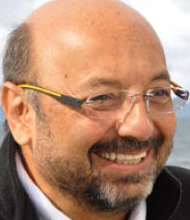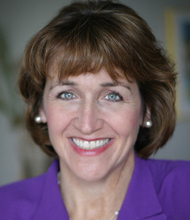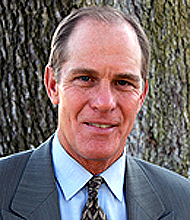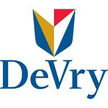| TRAVELS FROM |
|
SPEAKING FEE RANGE ** Please note that while this speaker’s specific speaking fee falls within the range posted above (for Continental U.S. based events), fees are subject to change. For current fee information or international event fees (which are generally 50-75% more than U.S based event fees), please contact us. $5,000 to $10,000 |
|
BOOK DAVID GALLO speakers@coreagency.com |
| TRAVELS FROM |
|
SPEAKING FEE RANGE* $5,000 to $10,000 |
|
Book David Gallo speakers@coreagency.com |
- Director of special projects at the Woods Hole Oceanographic Institution and chief geographer of the Titanic shipwreck.
- A humorous presenter, sharing the amazing attributes of underwater creatures and geography with gentle wit and an eye for the unusual.
- Deep believer in the vital importance of the world’s oceans to human welfare.
- Gallo’s “Underwater Astonishments” TED talk is one of the top three TED talks viewed to date, with over 8 million views.
Dr. Gallo’s scientific expeditions have covered all of the world’s oceans. He was one of the first oceanographers to use both robots and submarines to explore the deep sea floor. He’s explored the wreck of the RMS Titanic, creating the underwater site’s first detailed and comprehensive map, and he co-led a successful international effort to find the remains of 2009’s ill-fated Air France flight 477. Dr. Gallo’s current efforts include plans for an expedition to find and document the wreckage of Antarctic explorer Ernest Shackleton’s ship, the HMS Endurance. He is a member of James Cameron’s Deep Ocean Task Force and the XPrize Ocean Advisory Board.
The ocean plays a critical role in providing the air, water, and food we need to survive, and yet human activities have had a profound – and often detrimental – impact on the oceans’ health. These waters hold important information about our past and resources for the future, but we understand little about them. Dr. Gallo believes education is the key to bolstering public support for research and care of our oceans. He is devoted to sharing the excitement and possibilities of ocean exploration with the public. His international lecture audiences have ranged from children to CEOs as he seeks to encourage that little bit of Jacques Cousteau and Jules Verne in each of us.
Holder of a doctoral degree in oceanography from the University of Rhode Island, Dr. Gallo is co-recipient of a Computerworld-Smithsonian Award in recognition of his pioneering role in exploration and communication. He is an elected fellow of the American Association for the Advancement of Science and a national fellow of the Explorers Club, and was recently honored with the Lotus Club Distinguished Achievement Award in Science.
David Gallo has a talent for bringing the mysteries of the ocean to light – and turning his audiences into fervent admirers, and advocates, of this vital component of our world. With gentle humor and an eye for the unusual or quirky, Dr. Gallo helps us understand the importance of the oceans and their creatures. As a veteran of scientific, archeological, and forensic recovery missions, his expertise is broad and readily tailored to the needs of different audiences.
Dr. Gallo’s scientific work exploring the dramatic landscapes of the undersea world provides unique insight into a portion of the planet we know little about. He has spent considerable time thinking about the opportunities – and obstacles – the oceans have presented for human evolution and development. A skilled popularizer, his scientific presentations are engaging and accessible.
As chief geographer of the 20th century’s most iconic shipwreck, Dr. Gallo brings the Titanic to life once again, sharing tales of the effort to catalogue, understand, and preserve the ship’s artifacts and legacy. His expertise in underwater mapping has come in handy in more recent tragedies, as well. Dr. Gallo explains the challenges of locating and examining an aircraft such as 2009’s Air France flight 447 when it crashes in deep water.
Deep Sea – Deep Secrets: Exploring and Understanding the World Beneath the Sea
Underwater lakes, rivers, waterfalls, mountains, valleys, volcanoes, and earthquakes and life that rivals the tropical rainforests…..this presentation will expose the audience to some of the most startling discoveries made in the global oceans. Nearly every expedition into the deep returns with discoveries that are often surprising, sometimes startling, and on occasion revolutionary. The audience will also be exposed to the importance of understanding the relationship between humanity and the sea.
Beyond Titanic – What’s Left to be Discovered in the Deep Sea
The oceans hold the clues to our past and the keys to our future. Despite this fact they remain mostly unexplored and poorly understood. We have only explored about 5 percent of the ocean realm and yet we have made discoveries that change the way we think of life on this, and other planets. What’s in the other 95%? Were we lucky enough to find all of the great discoveries in the few percent we explored or is the ocean full of surprises?
Exploring RMS Titanic – A Modern Day Myth
2010 marked the 100th anniversary of the sinking of RMS Titanic. The wreck of Titanic lies 300 miles south of St John Newfoundland. With the proliferation of new tools for ocean exploration, it’s never been easier to access the wreck site and to remove artifacts from the seafloor or from the ship itself. This presentation discusses the effort to map the entire Titanic wreck site, to inventory the thousands of artifacts in and around the ship, and the effort to preserve the legacy of Titanic for posterity.
The Search for Air France 447
In the dark of night on June 1 2009, Air France flight 447 fell from the sky. The last known position of the flight was somewhere in the Atlantic Ocean between South America and Africa. This presentation will introduce the audience to challenges of locating and examining an aircraft in deep water.
Origins, Evolution, Destiny: Humanity and the Sea
Throughout history the oceans have been both pathways and obstacles to human evolution and development. This presentation introduces the audience to what we know, what we don’t know, and what we need to know about the oceans role in shaping the rise and fall of civilizations and the shaping of humanity.

 VIDEO
VIDEO PROGRAMS
PROGRAMS










































